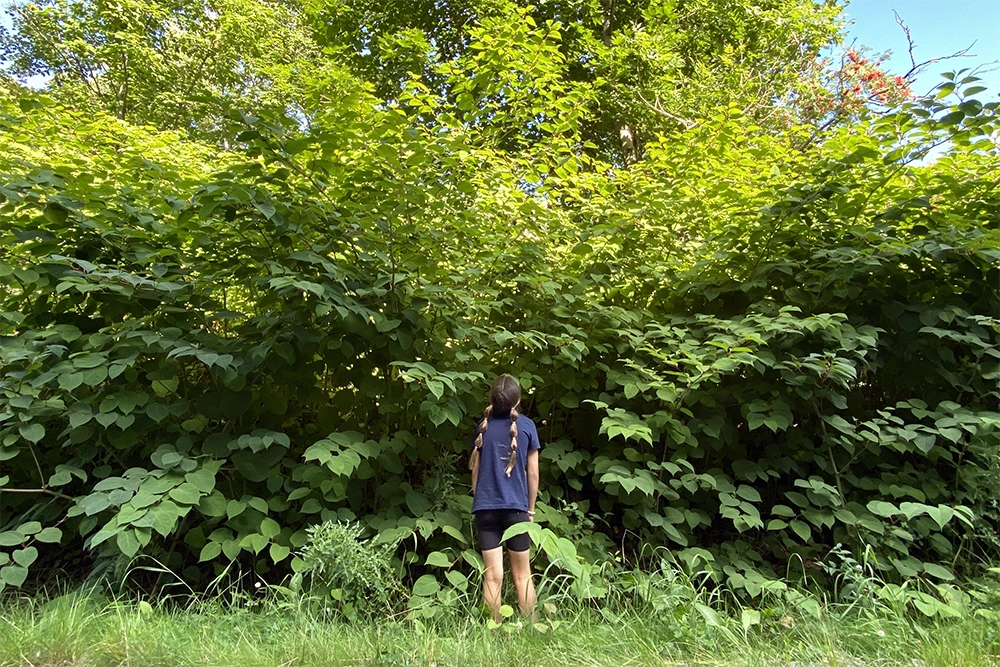Kinn Municipality Takes the Lead in Sustainable Construction Practices: First Municipality in Norway to Choose Steam Treatment of Soil with Japanese Knotweed for Reuse.
Kinn Municipality is setting a new standard for environmentally friendly construction practices by becoming one of the first municipalities in Norway to require that soil from construction projects be steam-treated and reused rather than disposed of. This groundbreaking initiative significantly reduces environmental impact and promotes a circular economy in the construction industry.

A Step Towards a Greener Future
Traditionally, large amounts of contaminated or biologically compromised soil are deposited, leading to unnecessary resource consumption and environmental strain. Through collaboration with SoilSteam International, a provider of advanced steam technology for soil decontamination, Kinn Municipality is taking an important step to ensure that soil masses are not only cleansed but can also be reused in future projects.
“We are proud to set an example of how construction projects can be carried out in a more environmentally friendly manner. Reusing decontaminated soil reduces the need for extracting virgin materials and minimizes transportation requirements,” says Inge Andre Fosse Ytredal, Construction Manager at Mesta.
Efficient Steam Treatment Yields Clean Results
The process involves excavating the soil, coarse sorting to remove large stones, and temporarily storing it before it passes through a screening plant and SoilSteam’s steam machine. The steam treatment effectively eliminates unwanted seeds, plant diseases, and other biological contaminants without the use of chemicals. This ensures that the soil can be reused without concerns about harming crops.
“Our technology provides an environmentally friendly method for decontaminating soil, and it is inspiring to collaborate with a municipality like Kinn, which recognizes the value of investing in sustainable solutions,” says Hans Kristian Westrum, Sales Manager at SoilSteam International. “Last year, we saw the Norwegian Public Roads Administration (Statens Vegvesen) focus on soil reuse when they chose Dokka Entreprenør to execute a road project in Jevnaker. This led to the recovery of 4,000 tons of soil. Now, we see that both counties and municipalities are becoming interested in this, and it is encouraging for both us and the environment that Kinn Municipality has chosen this sustainable solution,” he says.
Cost-Effective and Environmentally Smart
“Although steam treatment involves a cost, we compared this expense with the alternative of transporting and depositing the soil masses. As a result, steam treatment and reuse turned out to be the more cost-effective solution,” says Jorunn Reisæter, Climate and Environmental Advisor at Kinn Municipality. “Additionally, the significant environmental benefits are difficult to put a price tag on,” she concludes.
The Future of Construction Projects in Norway?
With Kinn Municipality leading the way, this initiative could inspire other municipalities and contractors to rethink soil management. Sustainable solutions like this may soon become the norm rather than the exception in Norway’s construction industry.